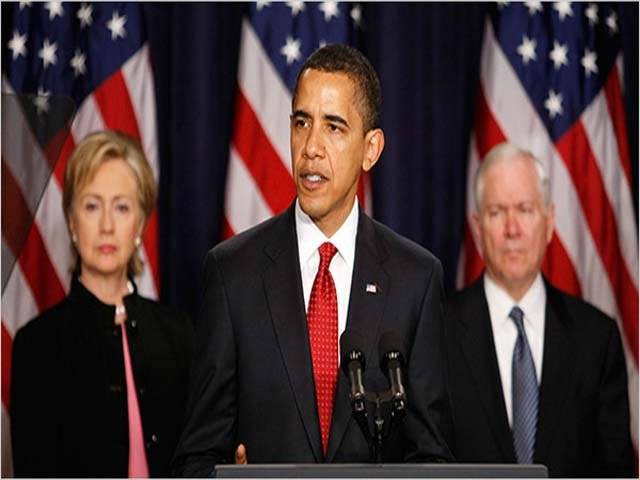The U.S. is hoping to destroy terrorist safe havens in Pakistan with a combination of aggressive military operations from the Afghanistan side and what one senior official called "energetic working" with Islamabad. Warning that the al-Qaeda was planning attacks on the U.S. from its safe haven in Pakistan, President Barack Obama on Friday unveiled a new strategy to "disrupt, defeat and dismantle" the al-Qaeda terrorist organisation and the Taliban in the two countries. Asked how the strategy would help in destroying the safe havens in Pakistan, Bruce Riedel, a former CIA officer and Middle East and South Asia expert who chaired the review of Mr. Obama's Afghanistan-Pakistan policy, suggested a combination of military operations from Afghanistan side and tough diplomacy with Pakistan would do the trick. "I think the short answer to that is that the combination of military operations, aggressive military operations on the Afghan side, and working energetically with the Pakistani government to shut down these safe havens, creates the synergy which we hope will then lead to their destruction," he said at a White House briefing. Asked if Pakistan's Inter Services Intelligence (ISI) agency was aiding the Taliban, Riedel parried, but pointed to media reports suggesting that the military intelligence outfit continues to have connections with terrorist groups despite Islamabad's official protestations to the contrary. "I'm not going to get into the intelligence questions which have been in every newspaper in the United States in the last several days," he said. "This strategy is built upon a very clear understanding of what's going on in the region, but I'm not going to comment on intelligence matters today." The U.S. special representative for Pakistan and Afghanistan, Richard Holbrooke, too declined to answer a question if Mr. Obama's remarks that "we will insist that action be taken - one way or another - when we have intelligence about high-level terrorist targets," meant that the U.S. will act on its own if Pakistan did not. "I just don't think we can answer that question," he said. "It's speculative, it's hypothetical, and it would be deeply injurious to our national interest to speculate. But I appreciate the importance of the question, and that's all we're ready to say." Asked if he could say something about what the president meant by his remarks, Mr. Holbrooke said: "No." But Obama spokesman Robert Gibbs was more forthcoming at a later briefing. Asked if Mr. Obama's comment suggested that if the Pakistanis do not act, others will have to, he said: "think that's a reasonable reading of that, and I think it's consistent with the President's policies and what he said throughout the campaign."
Friday, April 19, 2024
US to push Pakistan to destroy terrorist safe havens

Karachi: AVLC hands over snatched, stolen cars to owners
April 19, 2024
Sharjeel says govt taking steps against drug mafia
April 19, 2024
Gas leak claims life in Quetta
April 19, 2024
A Tense Neighbourhood
April 19, 2024
Dubai Underwater
April 19, 2024
X Debate Continues
April 19, 2024
Hepatitis Challenge
April 18, 2024
IMF Predictions
April 18, 2024
Kite tragedy
April 19, 2024
Discipline dilemma
April 19, 2024
Urgent plea
April 19, 2024
Justice denied
April 18, 2024
AI dilemmas unveiled
April 18, 2024
ePaper - Nawaiwaqt
Advertisement
Nawaiwaqt Group | Copyright © 2024





